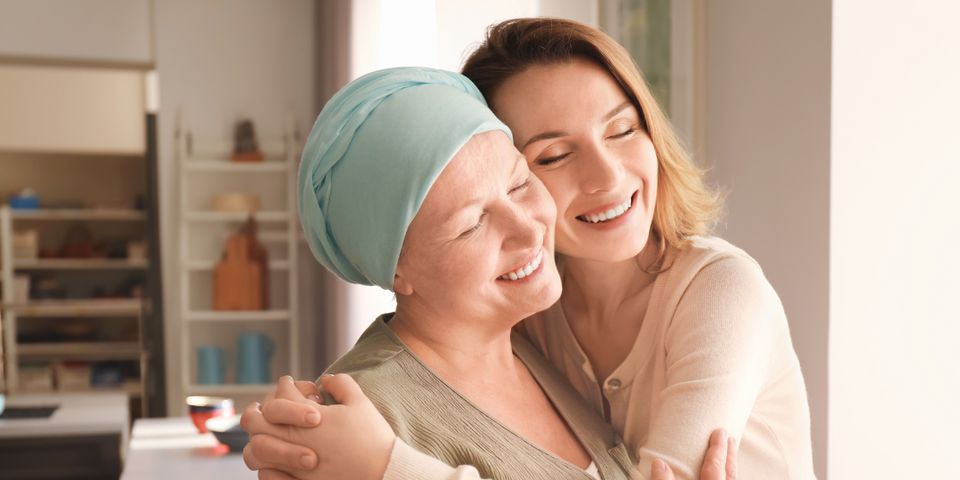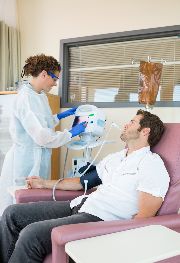
Chemotherapy is a life-saving treatment for people battling cancer. If your oncologist has recommended it following your diagnosis, it’s common to have questions. Since understanding what to expect provides many people with comfort, here’s more information about this treatment.
What to Know Before Starting Chemo
How does chemotherapy work?
Chemotherapy, also called chemo, slows or destroys cancer cells with drugs. It’s used for many cancers, including breast and lung cancer, leukemia, and Hodgkin’s disease. The treatment may completely eliminate the cancer cells, or it can make tumors smaller and prevent cells from spreading throughout the body.
What’s the first treatment like?
Chemo drugs come in a variety of forms, most commonly as fluids that need to be delivered to the body's circulatory system, but also as oral medications and topical creams in limited circumstances. Your doctor will determine which location and type of treatment are best based on your condition.

For example, the staff at an outpatient center may provide subcutaneous injections, similar to insulin, into your arm, hip, or thigh. Patients undergoing intra-arterial treatment will have a drug delivered to the artery that supplies blood to the cancer. IV therapy, which is often the most familiar, administers the drug through an arm vein.
How do I prepare?
You may be allowed to bring a friend or family member. Choose someone who provides emotional support and can write down information the health care staff provides. It’s wise to have them drive since you may be tired after your treatment.
Dress comfortably since the treatment can take anywhere from 30 minutes to several hours, depending on your scope of care. Fortunately, there are many ways to pass the time. Bring headphones to listen to music or watch a movie on your phone. You can also chat quietly with your friend or read a book.
Can I expect side effects?
Chemo drugs have to act quickly to kill multiplying cancer cells. As they move through your body, they can accidentally damage healthy cells, resulting in physical side effects.
While the symptoms are unique to everyone, common symptoms include hair loss, fatigue, nausea and vomiting, loss of appetite, and changes in skin and fingernail color. Some patients lose weight, and others may experience numbness or tingling sensations in the body. It’s important to let your oncologist know what you're feeling so that they can make any necessary changes.
If you live in Anchorage and are battling cancer, the team at Alaska Oncology and Hematology, LLC, will offer the support and resources you need. They prioritize patient comfort, providing chemotherapy, immunotherapy, and other ground-breaking treatments to support your health. Learn about their services online, or call (907) 279-3155 to schedule an appointment.
About the Business
Have a question? Ask the experts!
Send your question

